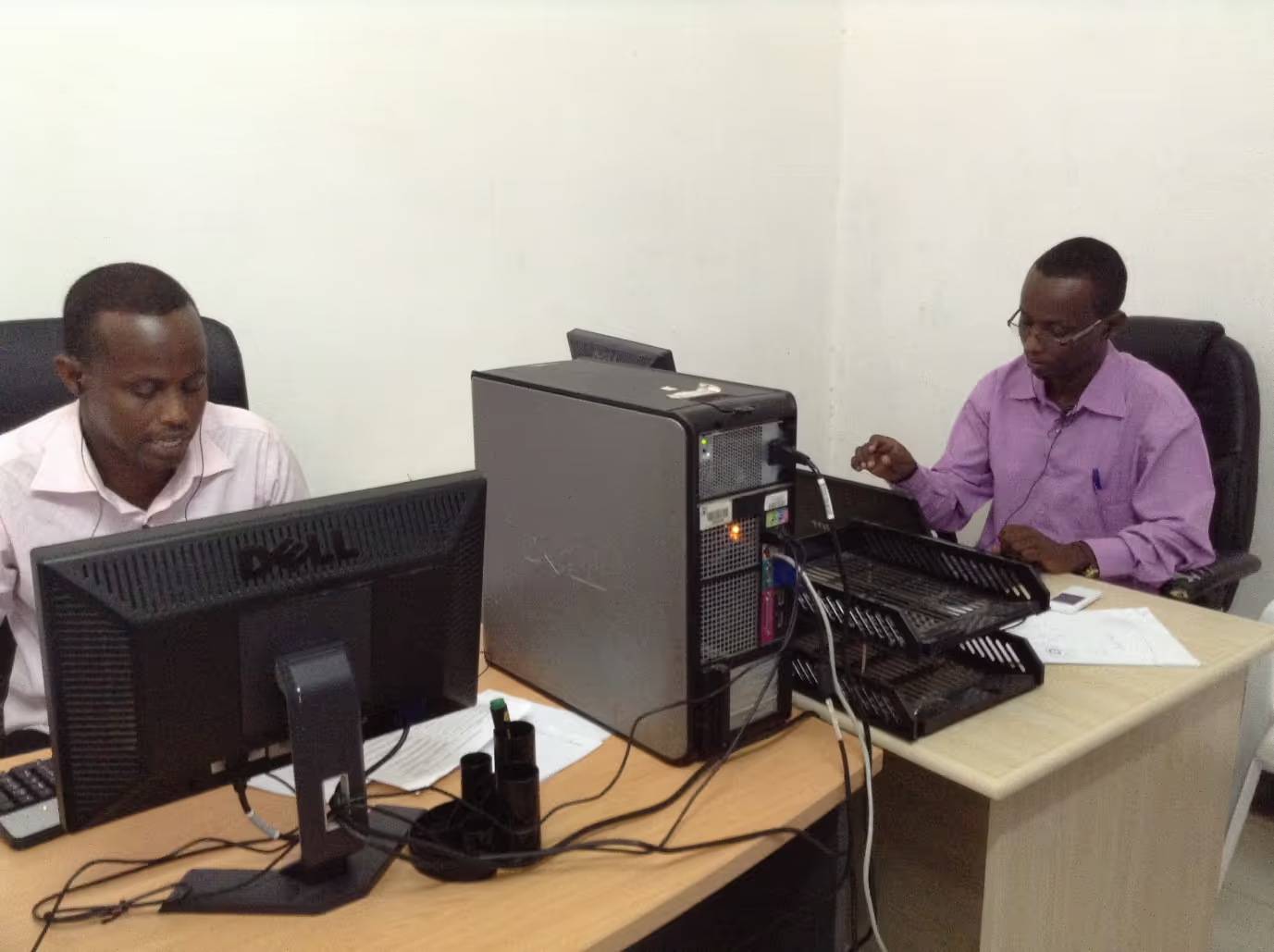Subax wanaagsan Somalia!

After blogging about the DR Congo in recent months, we're now pleased to provide an update on Somalia. The mVAM mobile phone survey project is underway in central Somalia. Our approach is a bit different from DR Congo. Unlike in DR Congo, where we distributed phones to those we wanted to call, we chose not to do so in Somalia where 70 percent of people have mobile phones which demonstrates a deep rooted cell phone culture.
The call center: build it or buy it?
Our Somalia team has set up a call center in the Galkayo office. When we started the project, we considered outsourcing our phone surveys to a private company based in Nairobi, Kenya. In the end, we decided against it and instead set up a call center in-house. We thought we would learn more by implementing the calls in-house than through a private service provider and in the process also build better synergies with the local service providers.

Initially, we had hoped to start calls early this year, but it took longer than expected to recruit qualified candidates willing to work in Galkayo due to security concerns. Indeed, the AMISOM-led military campaign against Al-Shabaab in South Central Somalia since early March meant reduced humanitarian access. Also another serious security incident occurred in Galkayo in April, when two UN staff were shot at the airport. In such a restrictive environment, we had to be flexible and wait for the right time to make the call center operational. In mid-April, Noor and Angie, our local and international VAM officers, started training our operators in Galkayo remotely through teleconferences and Skype calls. Ironically, a key reason we're testing phone surveys in conflict areas is to reduce our staff exposure to risk—so it is only fitting that in the end, circumstances made us train our operators remotely as well.
How our first calls went in Somalia
The first round of calls began on 23 April with our operators placing some 50 calls a day. Thus far we're getting responses to about half the calls. Just as in DR Congo, the first round pace is slow as operators are learning to place calls while entering data. We know that the pace will pick up as operators and the people they call get used to talking to each other. We are optimistic but expect challenges: since more than 6 months have passed since our baseline, some of the 430 phone numbers we collected may not work anymore. When we call, we might not necessarily be reaching the same person that we had initially contacted during our face-to-face baseline. Analysis of the first interviews will tell us more about these issues.
Above all, we're pleased that calls have started and that the team was able to successfully overcome considerable operational obstacles. We're proud to be collecting data in Central Somalia—since we know that alternatively we would have had to put more people in harms way to get the necessary information from the displaced population in the area.
Stay updated
Sign up for our newsletter to receive regular updates on resources, news, and insights like this. Don’t miss out on important information that can help you stay informed and engaged.
Explore Elrha
Learn more about our mission, the organisations we support, and the resources we provide to drive research and innovation in humanitarian response.


.png)